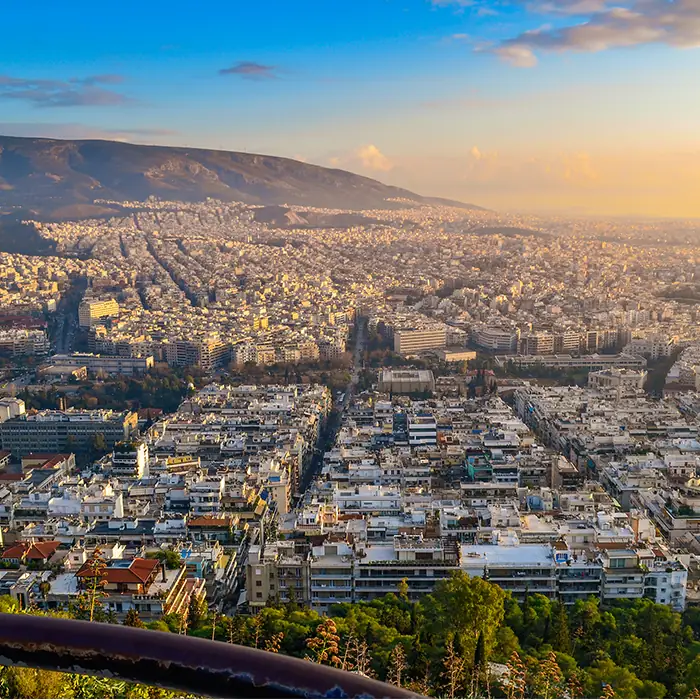
Through the cooperation with a contractor for the collection of a separate plastic stream in 2 shopping centres (malls) in Attica, the quantities of PET bottles derived from this category have been recorded since 2019.

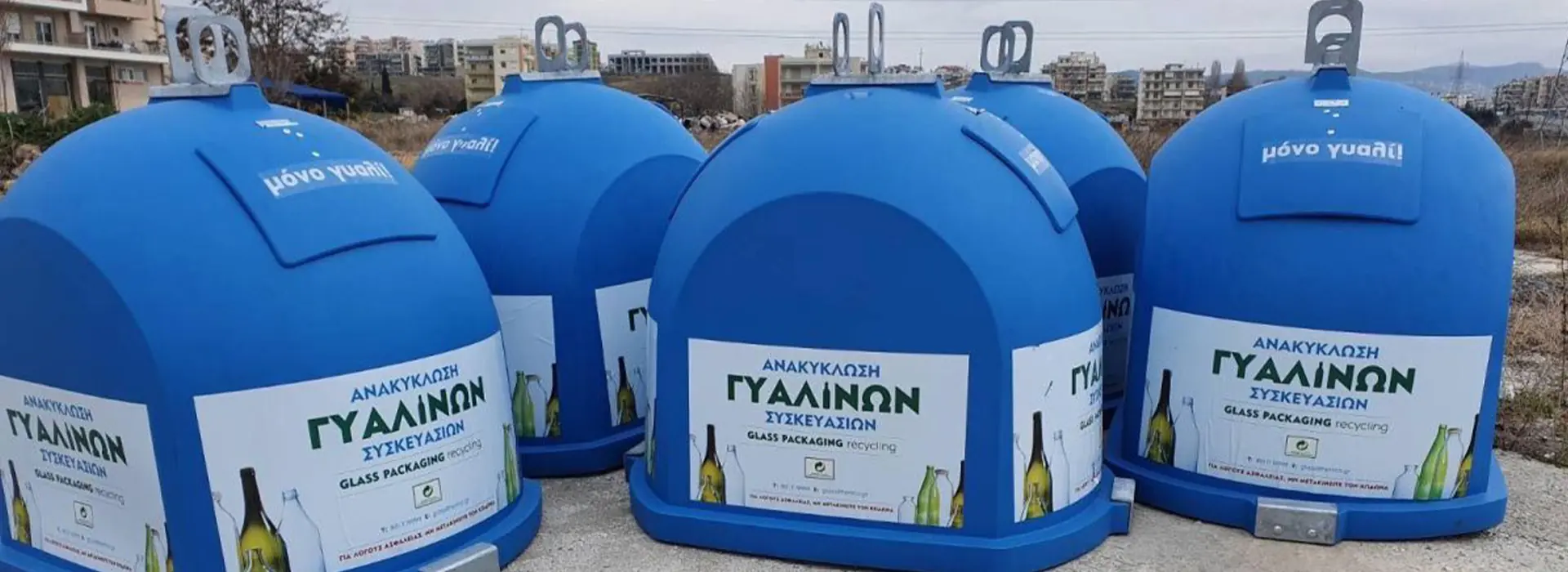
With significant quantities of glass bottles accumulated in specific business areas, HERRCO has established a separate glass recycling stream since 2013. The Blue Bell bin is the key instrument for the separate collection of glass. Blue bells serve large producers and places of business activities such as nightclubs, bars, coffee shops, restaurants, hotel complexes etc. where large quantities of glass packaging are consumed which would otherwise end up in common waste. HERRCO provides the necessary collection equipment (reusable bags or wheeled bins) to the businesses while making regular and repeated visits to raise awareness and inform them of how to participate in the program. HERRCO is responsible for collecting and transporting the material in accordance with the procedures approved by the competent authorities. Finally, the material is forwarded to producers in Greece and abroad for recovery and recycling.
The European Directive on disposable plastics sets out, inter alia, a different objective for the separate collection of plastic beverage bottles for 2025 and 2030. Following the European Directive 2019/904, in October 2020, Law 4736 was passed, which harmonized the European Directive and the operation of a guarantee system for plastic PET bottles was established starting in 2023.
As part of the above changes, in 2019 HERRCO started organizing pilot projects for separate collection of PET bottles. The following actions constitute a legacy for the upcoming operation of a guarantee system, as useful – operational and financial conclusions are drawn for the separate collection of this material.
The main pilot projects that have been organized since 2019 are summarized below:

Through the cooperation with a contractor for the collection of a separate plastic stream in 2 shopping centres (malls) in Attica, the quantities of PET bottles derived from this category have been recorded since 2019.
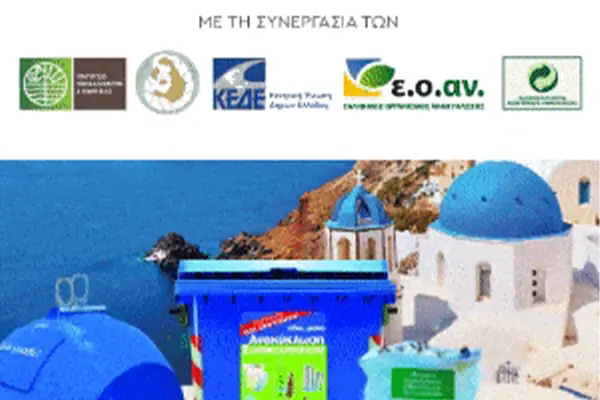
In 2019, a door-to-door collection program was launched including approximately 60 catering businesses on the island, as well as collection of material from the ports of Santorini. Also in 2020, PET-bottle-shaped bins were installed in a public space to provide a separate collection network on the island, because the results of the pilot project were particularly encouraging.
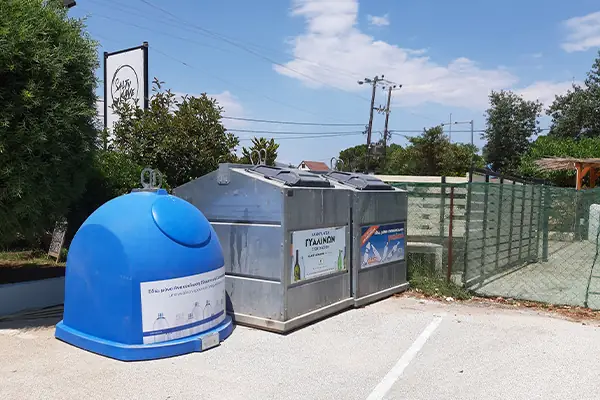
In 2019 equipment for separate collection of PET bottles was installed at Paros beach bars and the following year the programme was extended to the door-to-door collection of bottles from approximately 200 food establishments across the island. Pilot separate PET bins were installed in a public space. The participation of residents and tourists is satisfactory, and the material collected is of high purity. Similar bins have also been in operation in Antiparos since 2019 and the total quantities resulting from the Recovery Facility operating in Paros are recorded.
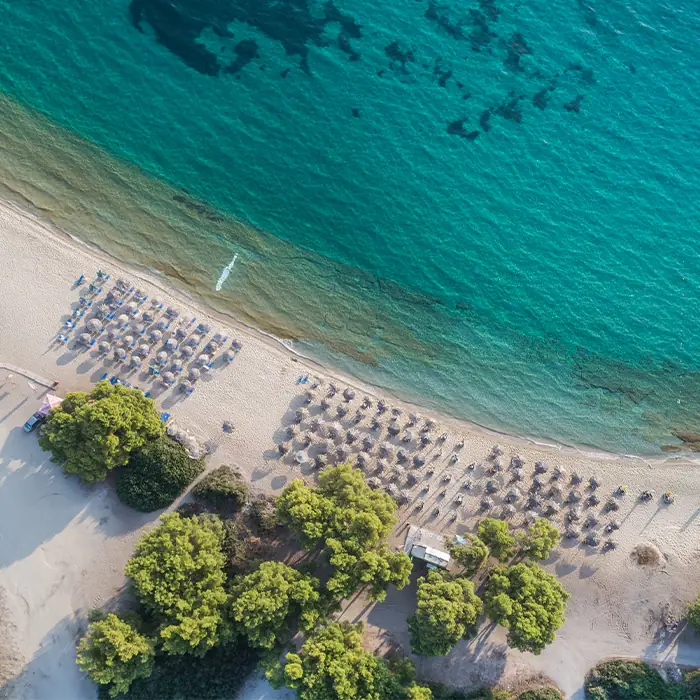
The recording of the collected quantities of PET bottles was organized in large hotel complexes in Crete, Chalkidiki, Corfu and Rhodes. Different storage and collection methods were used, as appropriate, to examine the efficiency of alternative methods.
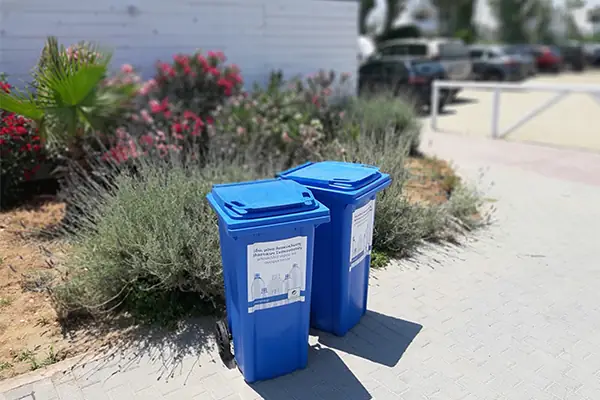
The separate collection of PET bottles was organized at Heraklion airport in Crete, with a particularly high performance especially during the six-month tourist season.
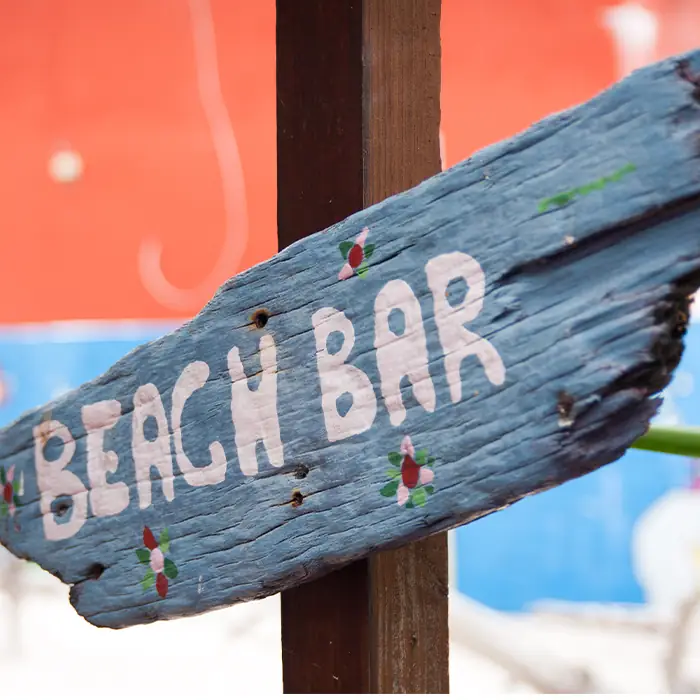
Equipment for separate collection of PET bottles was installed on the beaches of Attica (Schinias, Vouliagmeni, Porto Rafti).
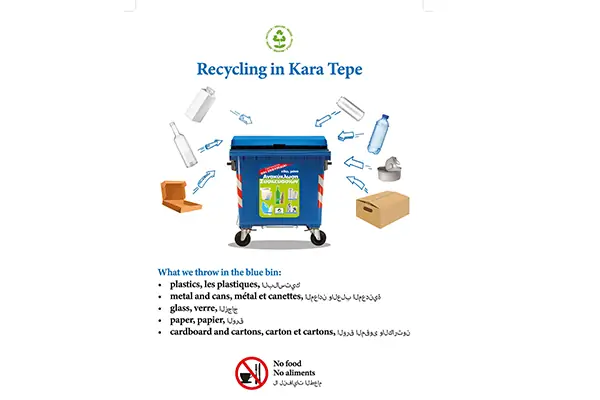
In 2020, the collection of PET bottle quantities was organized by the Lesbos Reception & Identification Centre (originally from Moria and later from Kara Tepe), where useful conclusions were drawn, and significant quantities were recovered.
In cooperation with Municipalities-Municipal Bodies and following their selection, separate paper-cardboard collection stream projects started and/or continued to operate, as in the following:
In cooperation with Municipalities-Municipal Bodies and following their selection, more than two stream projects (blue bin – blue bell) operate, such as:
HERRCO implements the collection and sorting of materials deriving from major events (e.g. in Herodion, in the Ancient Theatre of Epidaurus), such as concerts, exhibitions (e.g. Oenorama) or sporting events (e.g. Classic Marathon) that take place in the said venues and delivers the necessary equipment, such as small 120lt wheeled bins or disposable bags. In particular, in cooperation with the Athens and Epidaurus Festival, HERRCO has placed recycling bins at the entrance of the Odeon of Herodes Atticus and at the Ancient Theatre of Epidaurus to recycle the quantities of plastics produced. Each year, it also supports the Athens Authentic Marathon where a large number of PET bottles are consumed. Special disposable bags are given to volunteers for the disposal of bottles, while collection bins are placed at the start, end, and at various locations along the route. Every year, about 35 events and concerts that take place at large and open venues such as squares, stadiums and football fields throughout Greece are served with special collection bins from HERRCO.
But its action does not stop here. Historical buildings and important Institutions in Greece trust HERRCO, which supports their effort to recycle packaging materials and equips them with suitable bins. Examples are the historic building of the Hellenic Parliament, the Hellenic National Defence General Staff (HNDGS), buildings of the Ministry of Foreign Affairs and the Ministry of Finance and, of course, the building of the Ministry of Environment and Energy that are equipped with special equipment, recycling bins and regular collection routes on a weekly basis.
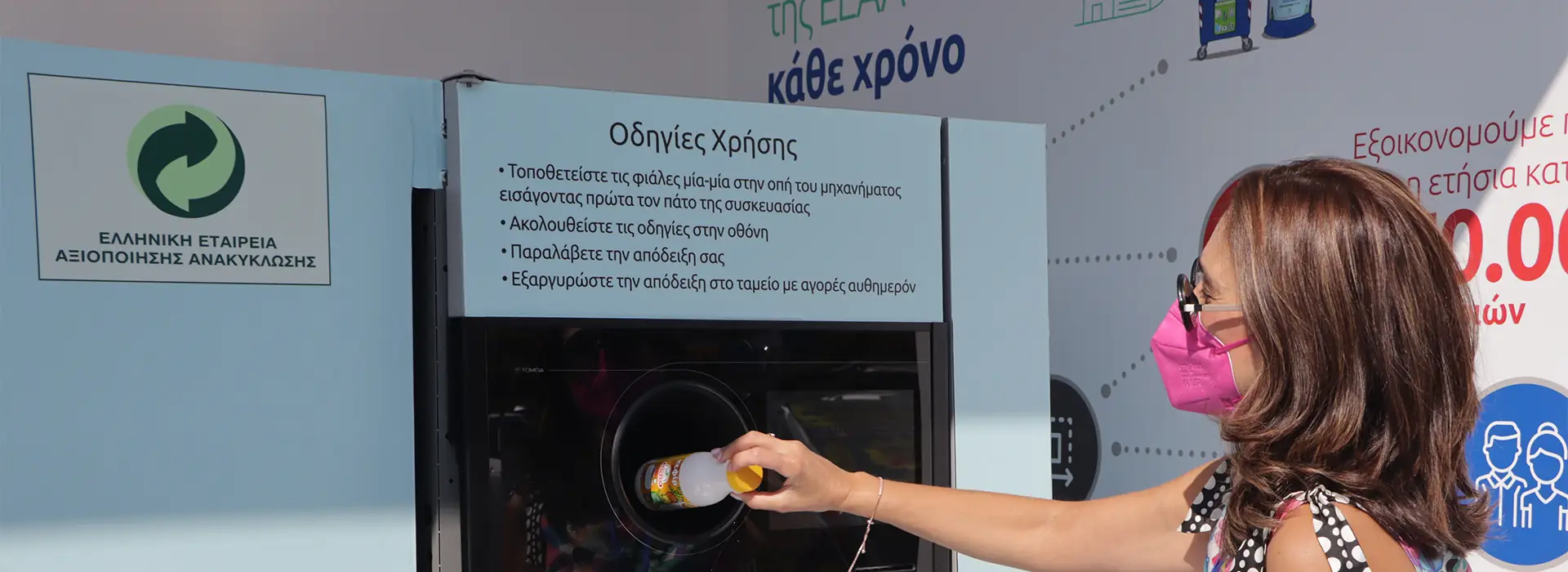
Besides the blue bin, the blue bell, and the special projects that HERRCO implements, as appropriate, in collaboration with Municipalities or Municipal Bodies, it has positioned 5 Reverse Vending Machines in well-known supermarket chains under a pilot programme, where quantities are collected and recorded. The three materials, plastic, aluminium, and glass, are placed in a hole and land in 3 different bins following a visual separation. The machines were placed for the purpose of assessing the effectiveness of this method and exploring consumer interest, and in particular that of youth, so as to assess whether this collection infrastructure can be utilized for demonstration purposes and serve as an educational tool for the initiation in the packaging recycling practice.